Hi and happy Sunday.
Often, the main elements of this “news”letter (to borrow one of Jonah Goldberg’s phrases) are off the news, meaning we’re publishing items that aren’t necessarily driven by what’s going on in a given week.
This edition is different.
The death of Pope Francis, about whom there is no shortage of opinions, is not just a seminal moment for the world’s 1.4 billion Catholics. The end of a papal era has vast implications for other nations and other religions alike (and of course throughout the entirety of Christendom). Thus, all of today’s Dispatch Faith focuses on Francis’ legacy, what may come next for the Catholic Church, or both.
One housekeeping note: In this edition, I’m including a short Q&A with Catholic scholar George Weigel. If you’d like to see more items like this in Dispatch Faith (in addition to the customary longform pieces), drop me a line via email, or if you’re a member, leave a comment on our site.
First up, though, is a helpful essay on where the Catholic Church goes from here, by Clemente Lisi, the editor of Religion Unplugged, a good publication whose work I’ve plugged in the newsletter before.
Clemente Lisi: After Francis, What Now for the Catholic Church?

With Pope Francis’ funeral in the rearview mirror, the focus at the Vatican shifts to the forthcoming papal conclave and the process of electing the next pontiff.
The Catholic Church is bigger than one single pope, but talk of Francis’ legacy lingers as the church finds itself at a crossroads. It is also something the next pope will have to contend with.
The Francis papacy was marked by a greater focus on politically progressive issues —migrants, climate change, and LGBTQ rights—that fueled much doctrinal confusion in the process. At the same time, Francis upheld traditional beliefs and was in lockstep with his predecessors Saint Pope John Paul II and Benedict XVI, holding a firm line when it came to issues such as abortion, the need for evangelization, and helping the poor.
From the start, the Holy Father made a strong impression by living simply, electing to reside, for example, in a guesthouse instead of the Apostolic Palace most popes choose. He emphasized his focus on the poor and charitable works, while championing more participation on the part of laypeople. These were all good things for a church seeking to find its place in the 21st century.
Nonetheless, I agree with a recent opinion by Philadelphia’s Archbishop Emeritus Charles Chaput (who should have been made a cardinal by Francis) that “an interregnum between papacies is a time for candor.” That candor includes highlighting what Francis did badly and what the next pope can do to make the church a much stronger force for good around the world, while also maintaining its centuries-old traditions and values.
Pope Francis was wrongly painted a communist by many on the political right in the United States and his native Argentina, but that doesn’t mean his often autocratic style didn’t alienate conservative Catholics. Yes, Francis was a pope of firsts—the first from Latin America, the first Jesuit, and the first to take the name Francis—but his disruptive style had its limitations. Francis’ era was one marked by too many news alerts proclaiming that some church teaching had been changed, only to discover very little had. It resulted in glowing mainstream press coverage and frustration for so many of us.
An example of this occurred in December 2023 when the pope approved allowing Catholic clergy to bless same-sex couples—issuing a document detailing the change in the Vatican’s policy—as long as it doesn’t resemble a marriage ceremony. In the days and weeks that followed, amid much pushback, the Vatican was forced to clarify the decision. What it all means for the daily life of Catholics is less understood even all this time later.
So what now for the next leader of the world’s 1.4 billion Catholics?
A lot will depend on whether the College of Cardinals elects a pope who is progressive, in the same vein as Francis, or a return to the traditional, like John Paul II and Benedict XVI. There’s no way to know how this secret process will play out. Francis named 108 of the 135 cardinals who will decide the next pope—a supermajority—but whether that has any influence on the outcome remains to be seen.
The Overton window, when it comes to church doctrine, may have shifted some, but that doesn’t mean the next pontiff can’t show that he is a leader for all Catholics. Banning things such as the Latin Mass at a time when more younger people in the West are hungry for tradition and liturgy in this ever more secular and digital world hurt Francis’ overall effectiveness. It’s a fine line, but the next pope can be both progressive and still hold on to tradition.
One way to do so is to avoid Francis’ doctrinal ambiguity (he was a Jesuit, after all) on a variety of issues that didn’t serve his 12-year papacy well. Jesuits, whose religious order was founded by Saint Ignatius of Loyola in 1540, have developed a more liberal or progressive viewpoint on a variety of topics over the centuries. Francis came to embody this very spirit.
While the pope’s proclamations featured a series of well-meaning gestures (coupled with what appeared to be policies akin to a liberal Protestant church), the Catholic Church’s role is primarily to ignore the headlines of today. Instead, the church needs to focus on its primary mission—promoting faith and guiding believers towards spiritual salvation.
In greater depth, here are the five areas the next pope will need to focus on:
Ideological divisions.
As mentioned, the church has not been immune to the culture wars, experiencing deep internal divisions in an ever-polarizing world. The upcoming conclave to elect a new pope will be pivotal in determining which vision prevails, with potential candidates such as Cardinal Luis Antonio Tagle of the Philippines—dubbed “the Asian Francis”—viewed as someone who could continue in a progressive direction.
Francis never fully addressed some of the progressive factions—most notably in Germany over the issue of same-sex blessings—who thumbed their noses at doctrine. Even when the Vatican did address the issue in early 2023, German bishops said they would defy Rome. The issue became moot after the Vatican said such unions could be blessed, albeit with a series of caveats.
At the same time, Pope Francis was not a theological giant. It was tough to be in the shadows of such notables as John Paul II and Benedict. But he could have surrounded himself with someone with doctrinal heft. Instead, he named Victor Manuel Fernández to head the Dicastery for the Doctrine of the Faith. The cardinal fueled ambiguity with the announcement that priests could bless same-sex unions, something that included a carveout after it was poorly received by African bishops. The next pope should replace Fernández with someone like Benedict.
Clergy sexual abuse.
Long a plague on the church, this needs to be addressed by the new pope from the start. Critics have argued that Francis’ response to the crisis was insufficient, particularly in holding bishops accountable and ensuring greater transparency. Survivor groups have called for more action and systemic change to protect vulnerable children, seminarians, and nuns—who all have been the target of abusive clergymen—in order to restore greater trust in the church.
Oddly, Francis was a defender of Marko Rupnik, a Jesuit priest from Slovenia. The Jesuits expelled Rupnik from their order in 2023 after more than two dozen women came forward to say he had sexually and psychologically abused them. Nonetheless, Rupnik, also an artist whose mosaics decorate many churches around the world, remains a priest after the order was overruled by the Vatican as it sought its own probe. The next pope needs to make it a point to move quickly and make a decision regarding Rupnik’s future.
Demographic shifts and global growth.
While Christianity is declining in the West (despite some recent data revealing a growing interest by men and Generation Z), it is rapidly growing across the global South, particularly in Africa and parts of Asia. This rapid growth has occurred in sub-Saharan Africa, which today is home to about 171 million Catholics—up from an estimated 1 million in 1910, according to Pew Research Center.
This demographic shift presents challenges for the church’s governance, as the Vatican’s leadership remains predominantly European. Francis was Argentine (the son of Italian immigrants to the South American nation), but he essentially functioned as a European despite his outreach to the peripheries. He was in agreement with many European bishops who also favored a progressive stance. He made it a point to elevate such bishops to cardinals, while ignoring men like Archbishop Salvatore Cordileone of San Francisco, a conservative who sparred with former House Speaker Nancy Pelosi.
A new pope from the global South could alter the church’s dynamics. Wherever the pope hails from, a new global strategy will be needed beyond the usual papal trips.
Ensuring long-term financial sustainability.
It’s easy to forget that the pope is also the head of a small state. As leader of the Holy See, the next pope will face the financial pressures that come with running the Roman curia, the Vatican’s governing body, and a worldwide church. A decline in donations and rising costs in recent years haven’t helped. The Vatican’s financial situation has been in peril for some time.
In 2023, the Holy See’s annual operating deficit reportedly grew to more than $90 million. The Vatican doesn’t provide figures regarding its finances to the public. The Central Intelligence Agency’s World Factbook estimated, for example, that its revenues and expenditures in 2013 had reached $315 million and $348 million, respectively. The Francis era included several high-profile financial scandals. A new pontiff will need to explore new ways to raise money, while making sure the bloated Vatican bureaucracy and corruption can be tamed.
Interfaith dialogue and Christian persecution.
Francis had taken steps in interfaith dialogue, and the next pope will need to do the same without watering down doctrine. It won’t be an easy task, but a necessary one. So many Christians around the world are being persecuted as minorities. The pope will need to be an advocate for them, while helping to bridge divisions with other faiths.
Part of this interfaith dialogue involves the pope’s role as diplomat. It seemed as if the church’s role in international relations had somewhat weakened in recent years. Although the pope is considered a man of great influence, Francis’ papacy has also coincided with the rise of both secularism and populism. That placed the Vatican in unfamiliar positions on some issues, like finding itself aligned with left-wing parties in Italy.
There are plenty of conflicts around the world for the next pontiff to get involved in. The ongoing wars between Russia and Ukraine and Israel and the terrorist group Hamas are just two major ones that warrant attention.
Being pope is both complex and demanding. The next man to lead the Catholic Church will need to find the right balance between the spiritual, diplomatic, and administrative. It’s now up to the College of Cardinals to elect a new pope. It’s a decision guided by the Holy Spirit, not simply ambition or politics. It’s also a decision that will determine the future direction of the church and global Christianity. The time seems ripe to embark on a new era.
Patrick Gilger: How to Remember Pope Francis

Pope Francis’ legacy likely will not be an easy one to sum up succinctly, and only with time (and perspective) will it fully take shape. Patrick Gilger—a Catholic priest, professor, and, like Francis, a Jesuit—writes for our website today that how Catholics approach the act of remembering Francis will matter.
To grasp the papacy of Pope Francis we need not just an analytic but a discerning attention. Put differently: I am distrustful of answers that step outside of time, that step away from the site of illumination. Instead I want a discerning answer because, like memory, it is old. Or, more accurately, it is traditional. It remains part of a conversation that is still going on, an argument that is happening now.
This kind of answer is hard to come by because, as 19th century theologian St. John Henry Newman wrote in An Essay On Development Of Christian Doctrine, it takes time for a “real idea” to reveal itself as itself in history. Contrary to our expectations, Newman argued that a great idea is not “clearest near the spring [but] purer, and stronger, when its bed has become deep, and broad, and full.” Like rocks in a tumbler, the most real of our ideas are only burnished by the sacred weapon of time.
We human beings tumble our greatest ideas about inside of traditions. As Alasdair MacIntyre has taught us in After Virtue, what we call a tradition is an “historically extended, socially embodied argument about the goods which constitute that tradition.” Living traditions, then, are ongoing conversations that take place over a long time.
So what about the memories of Pope Francis? Gilger continues:
The contribution that the papacy of Francis has made to these questions—the questions that for centuries have dominated the conversation that is the Catholic tradition—has been less an attempt to resolve them than to embody a practical hope: that the entire church might become a subject capable of being guided by the Holy Spirit. That it might become more and more fully the body of Christ that it already is.
I admit that there are many times when I am myself less hopeful than Francis was. I remember not only when I have been sensitive to the word God is speaking through the life of another, but also the other times when I have been insensate and self-centered. I remember how much it costs to be a good priest. Just as it costs much to be a good father, a good wife, a good friend.
What I will remember most about the papacy of Francis is how often he himself remembered not how hard such sensitivity can be, but how good it is. That is why, I think, he was less afraid than I often am. Pope Francis believed in time—which, as he often and cryptically said, is “greater than space.” He believed in taking time to listen and to remember. This would allow us to “work slowly but surely, without being obsessed with immediate results,” to “endure difficult and adverse situations,” and “accept the tension between fullness and limitation.”
Quick Questions
Earlier this week at First Things, Catholic studies scholar with the Ethics and Public Policy Center and Pope John Paul II biographer George Weigel published a retrospective on Pope Francis’ legacy. I reached out to Weigel, who had several private audiences with Francis over the years, about his thoughts on where the Catholic Church goes from here. Our exchange is below, with my questions in bold.
Years from now, what do you think Francis’ best contribution to the Catholic Church will have been?
That’s not an easy question to answer, as it often takes decades, even centuries, for the Church to “digest” a pontificate and assess its impact. To take one example: the full impact of Pope Leo XIII (1878-1903), who in many ways created the modern papacy, is still being debated. One thing that can be said for sure of Francis is that the election of a Latin American and a Jesuit further broadened future fields of papal candidates, as had the elections of a Pole (John Paul II) and a Bavarian (Benedict XVI). Francis will also be remembered for his evident concern for the poor and the marginalized. What is less certain is whether he understood why the poor are poor, and what might be done about that.
Likewise, what will have been the biggest weakness?
Francis was deeply influenced by his Jesuit experience, in which the superior is a virtual autocrat. So the Francis papacy was the most autocratic in centuries. Yet despite that tendency to autocracy, Francis didn’t really fix the Vatican’s financial problems, which are severe, and he didn’t deal vigorously with several grave sexual abuse cases. His fondness for interviews turned the pope into a kind of oracle, which actually diminishes the moral authority of the papacy: No pope has any special insight into issues like climate change or the resettlement of migrants. In fact, one veteran and very Catholic European diplomat told me in 2017 that the pope’s absolutism on the problem of migrants—which amounted to a call for open borders—was shrinking the space in which a reasonable political solution to the undoubted problem of mass migration could be found.
What do you see as the most important or perhaps most immediate issue for the next pope to address and why?
The immediate evangelical need is for the next pope to radiate a sense of Christian confidence and joy. The immediate theological need is for the next pope to explain to the Church and the world that moral truth and mercy are not in conflict, despite the misimpressions sometimes created by the pontificate that has now ended. The immediate institutional need is for the next pope to restore an orderly pattern of governance, including serious financial reform, after 12 years of autocracy and dithering about Vatican finances.
Earlier this week, you wrote, “Christian communities whose self-identity becomes incoherent, whose boundaries become porous, and who mirror the culture rather than trying to convert it, wither and die.” Is this how you’d describe the Catholic Church presently? And what was Pope Francis’ effect on such a dynamic?
Francis didn’t create that problem, but he didn’t grasp it (at least in my experience of conversation with him), and therefore he didn’t address it vigorously enough. And this was a real problem, because that doctrinal and moral ambiguity and incoherence are destroying Catholicism in Germany, Belgium, and elsewhere in Western Europe. Why is that happening in these historic centers of Catholic faith? Because no one is interested in the “Church of Maybe.” The living, vibrant, attractive parts of the Catholic Church throughout the world—in the U.S., for example, but above all in sub-Saharan Africa, which is Catholicism’s growth center right now—have embraced Catholicism-in-full as an alternative to the nihilism and moral confusions of so much of contemporary Western culture.
It’s impossible to predict the vote of the College of Cardinals during the upcoming papal conclave. But in broad terms, do you anticipate cardinals moving in a direction more in line with their vote to elect Francis in 2013, or perhaps more in line with the vote to elect Benedict XVI in 2005?
This is the most diverse electorate in papal history. The cardinals really don’t know one another, so it is very hard indeed to predict how the cardinal-electors will decide on the next pope. Before the conclave of 2013, Cardinal Bergoglio of Argentina, who became Pope Francis, was promoted as a tough-minded reformer who would straighten out the Vatican bureaucratic and financial mess while continuing the dynamic orthodoxy of John Paul II and Benedict XVI. Neither of those expectations were met. That will be one factor in shaping the conclave’s decision. Another will be, as I indicated above, a desire to return to a more stable pattern of Church governance.
Would you consider the election of another pope from outside Europe to be a good thing?
I don’t think nationality counts for very much anymore in papal elections, with the possible exception of the difficulty that some Europeans and Latin Americans might have in imagining a black African pope. What counts—or should count—is the vibrancy of a man’s faith and his capacity to govern. And you can find that in many, many parts of the world church.
More Sunday Reads
- In case you missed it, on our site earlier this week, longtime Vatican correspondent Francis Rocca penned our initial obituary of Pope Francis. “While the late pope was an electrifying leader, he was also a polarizing one and left his church more divided than he found it—both ideologically and geographically. In his efforts to forge a more welcoming church, he stirred up controversies that pitted African conservatives against Western liberals, laypeople against the hierarchy, and Catholics who emphasize doctrine on personal morality against those who prioritize social justice. His overtures to Beijing and Moscow alienated members of his own flock in China and Eastern Europe, respectively. To be sure, a worldwide organization with more than 1.4 billion members spanning vastly different cultures and traditions will inevitably harbor tensions, especially in an era of rapid global change. The late pope inherited divisions between conservatives and progressives that had been deepening since the 1960s, when the reforms following the Second Vatican Council and the papal encyclical Humanae Vitae, which forbade contraception, sparked enduring conflicts over authority, morality, and church governance.”
- And Dispatch contributor Scott Salvato wrote an explainer on the College of Cardinals, the group of men (135 are eligible to vote) who will now select the next pope. “The College of Cardinals traces its origins to the early centuries of the Catholic Church in Rome, evolving into its current form under Pope Nicholas II in 1059. Initially serving as key advisers to the pope, the cardinals’ role expanded significantly as the papacy sought to consolidate its authority and regulate administration of the Catholic Church. Cardinals became the primary electors of the pope, ensuring continuity and ecclesiastical autonomy from secular rulers who often sought to influence and control the great authority of the church for their own ends. The red color of cardinals’ vestments symbolizes their willingness to defend the faith even to the point of shedding their blood as martyrs. The collective influence of the cardinals shapes Catholic doctrine, global church policy, and diplomacy—which often positions them as intermediaries between the Vatican, national governments, and other large national and international institutions. In modern times, popes have sought to internationalize the College of Cardinals, appointing more cardinals from regions in the Americas, Africa, and Asia. There are currently 17 cardinals from the United States. While their spiritual authority is considerable, their authority and influence within the church fluctuates depending on the reigning pontiff and the particular responsibilities of each cardinal. Ultimately, the role of a cardinal embodies both the sacred and administrative dimensions of church governance. The role reflects a delicate balance between faith, tradition, contemporary issues, politics, finance, and the practical issues of administering a global church of 1.4 billion Catholics.”
Religion In An Image
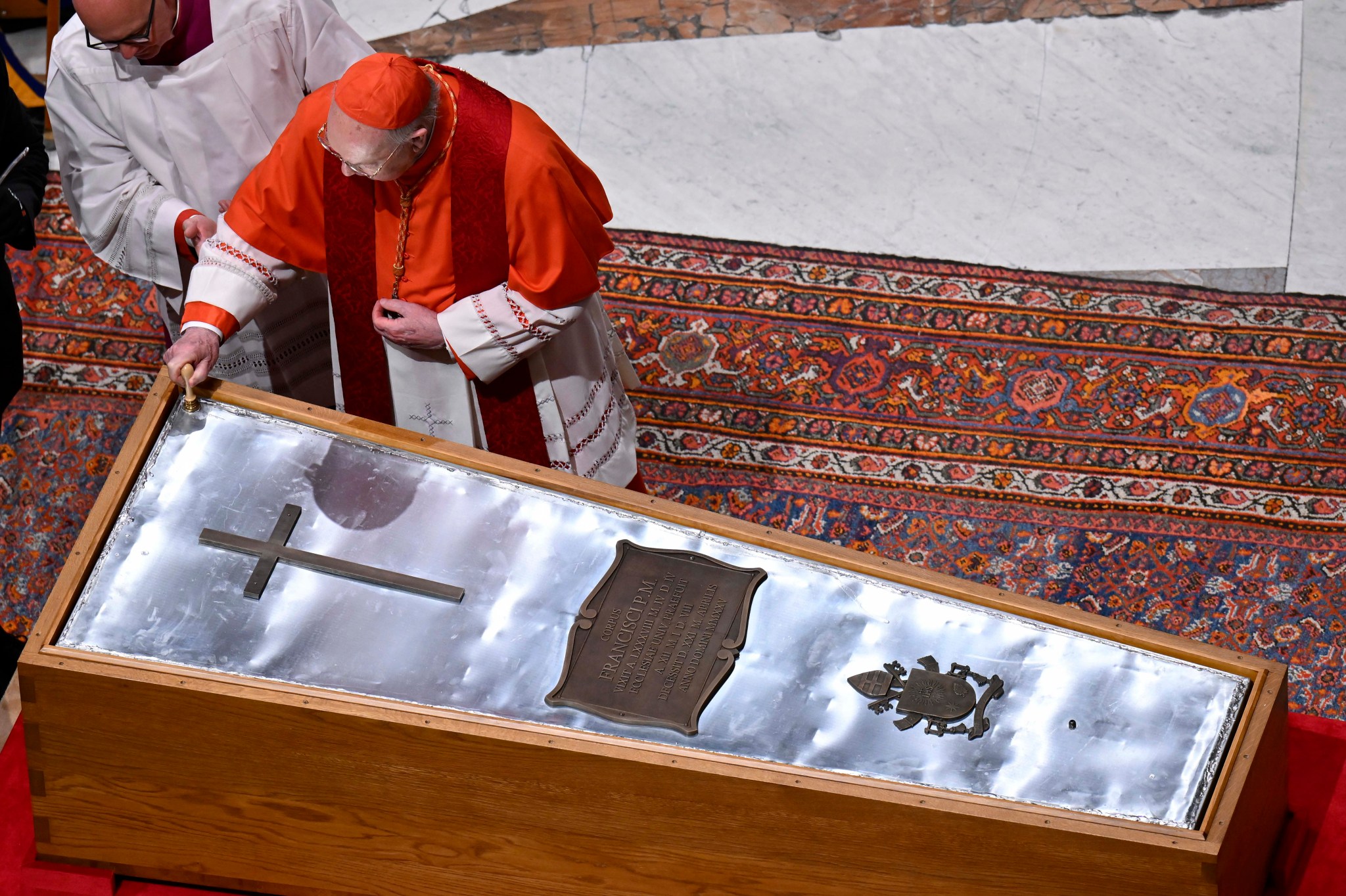
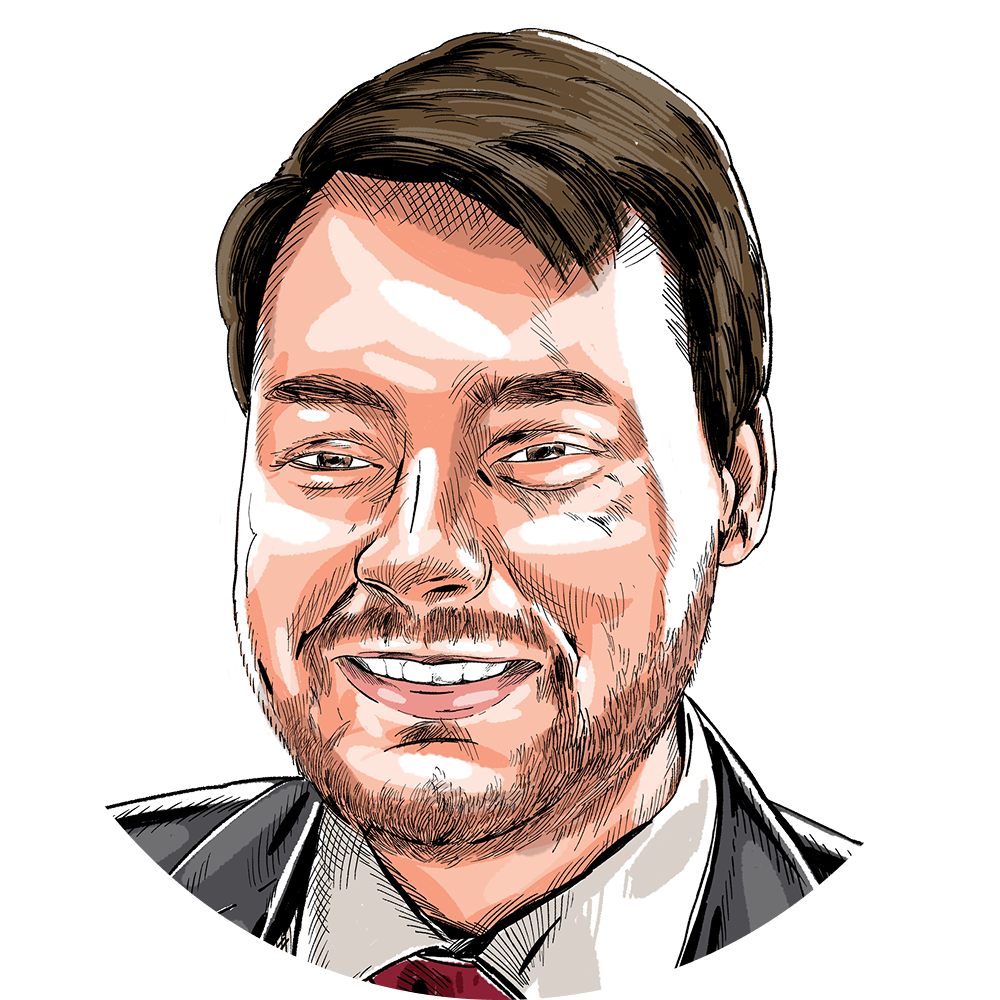

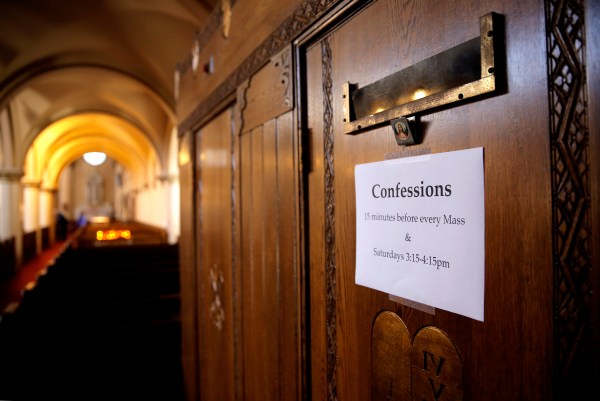

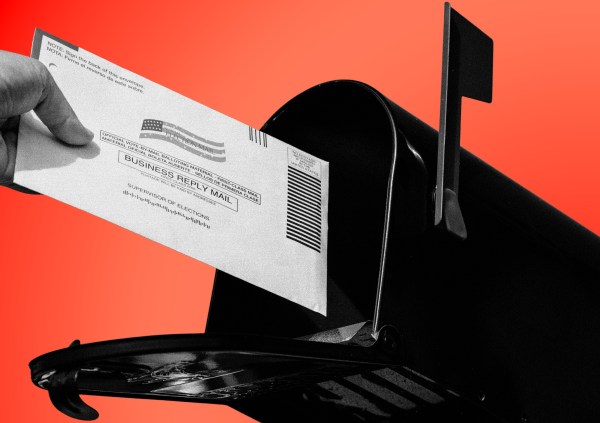
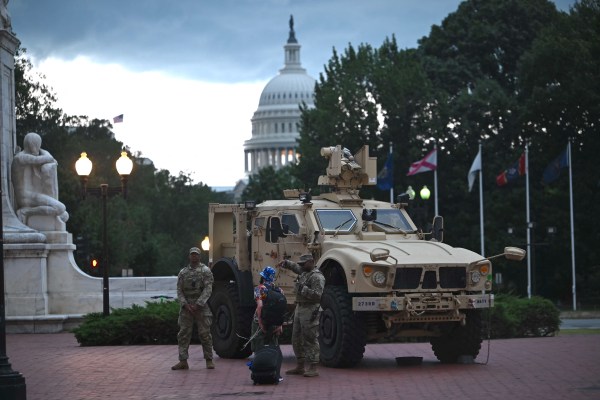



Please note that we at The Dispatch hold ourselves, our work, and our commenters to a higher standard than other places on the internet. We welcome comments that foster genuine debate or discussion—including comments critical of us or our work—but responses that include ad hominem attacks on fellow Dispatch members or are intended to stoke fear and anger may be moderated.
With your membership, you only have the ability to comment on The Morning Dispatch articles. Consider upgrading to join the conversation everywhere.